Southwell Workhouse is a humbling place, somewhere to be experienced at least once, I can guarantee you’ll never forget your visit. What an eye opener, from the cradle to the grave through the eyes of a pauper in the workhouse, a time travelling experience if you will.
This was our 3rd visit, we first visited in late 2003 when the National Trust were still making repairs to the buildings, they had only acquired in 1997 but the visit was still a very memorable one in many ways, my daughter dressed up in Victorian clothes and enjoyed exploring, especially down in the cellars and we took in all the aspects of life as it would have been in a Victorian workhouse.
As you leave it feels like any minor aspects of life you might have grumbled about in our modern-day life are quite insignificant compared to workhouse life as a pauper.
”The workhouse: A place of Hope or Despair”?

“Climbing out of poverty by your own efforts, that is indeed something on which to pride yourself, but poverty itself is romanticised only by fools”.
J.K Rowling Harvard University Commencement Address, 2008
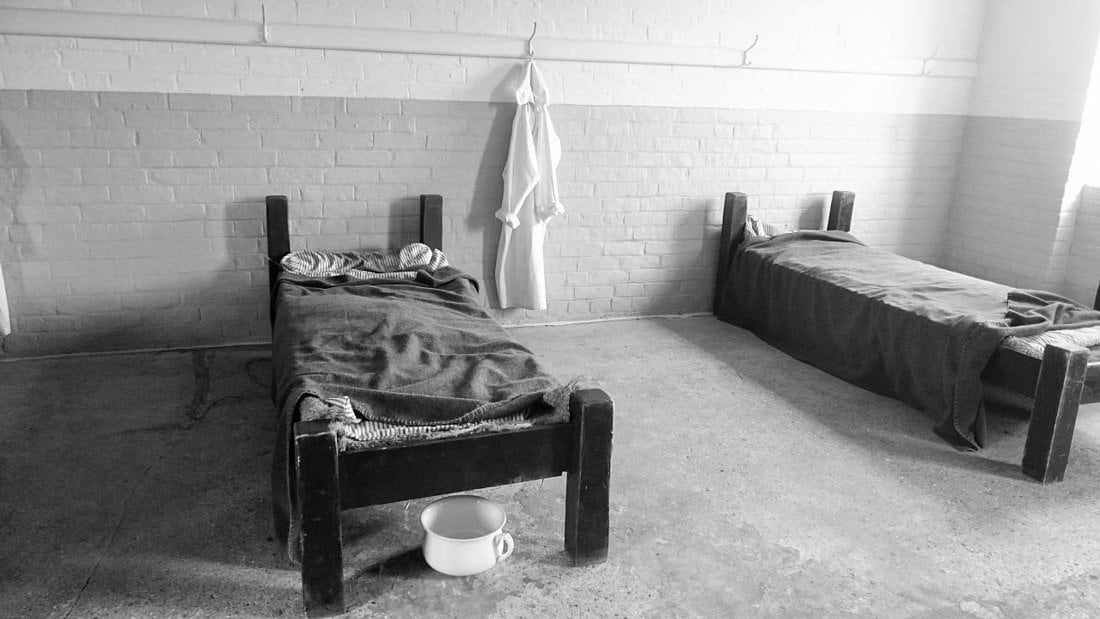
Audio Guide
The audio guide is well worth having because it makes the place come alive with the hub of background noises you would have expected in a Victorian workhouse, the tales of the paupers and of the staff, especially the Master and Matron who ran the workhouse like a military establishment.
Rules were strict and food was bland but freely available in the days of the workhouse. We enjoyed seeing areas of the workhouse opened since our last visit and the very organised garden, planted up with a whole variety of fruit and veg.
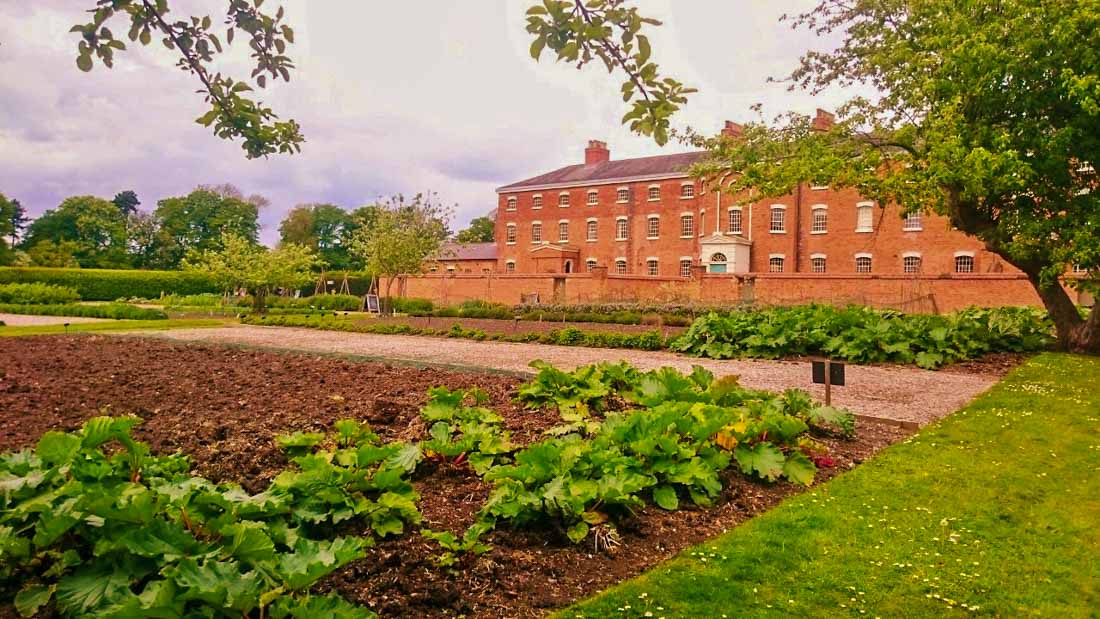
The Dead Room
A building we were able tour on our recent workhouse visit that was previously still under maintenance the first time around is the “dead room”.
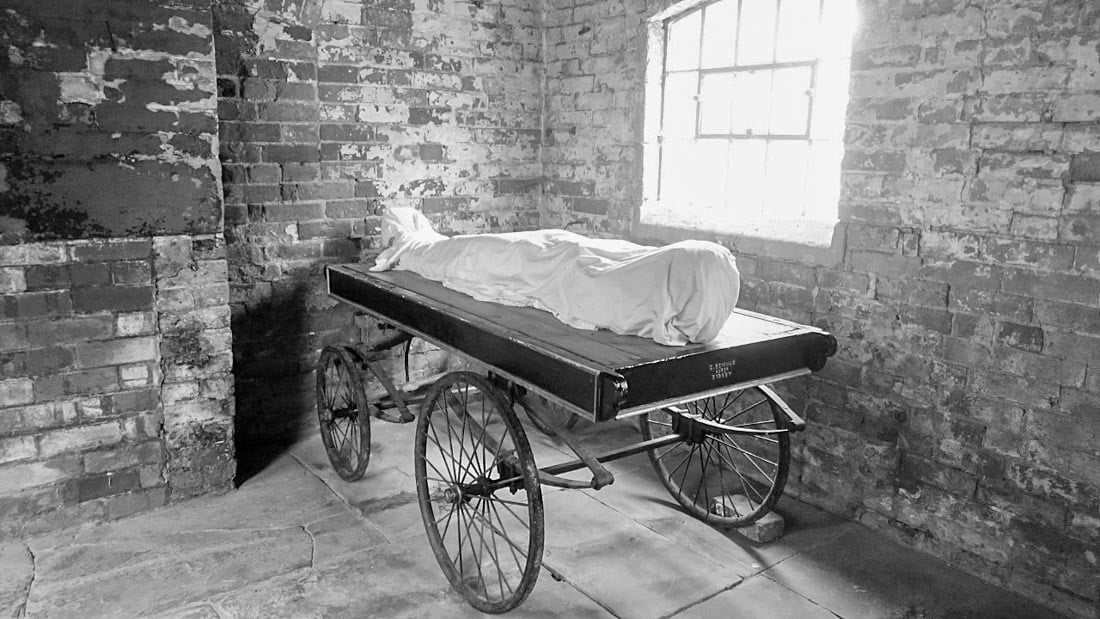
If a pauper died whilst a resident at the workhouse their body would be kept in the “dead room” until it could be moved to his or her local parish to be buried, or if there was no one to receive the body, they would be given a pauper’s burial or in some cases could be taken away to be used for scientific purposes, for example, for student doctors to practise their skills and of course for the advancement of medical practices of the era.
In the room next to the “dead room,” was a punishment room where an unruly resident might find themselves spending a few hours or many more depending on the type of rules broken.
The room would have been dark and kept very basic, also I believe the very knowledge that it adjoined the “dead room” would have given an extra element of fear especially in those days of superstition.

Workhouse Education
The children at the workhouse were all given an education as can be seen in the classroom, they would have learnt to read and write, be given religious education and taught skills for life. The older children would have been taught various suitable trades.
There would have been a very strict regime in the class room, a no-nonsense approach. There are slates to have a go with and also some items of Victorian children’s wear to try on, aprons, hats and bonnets.
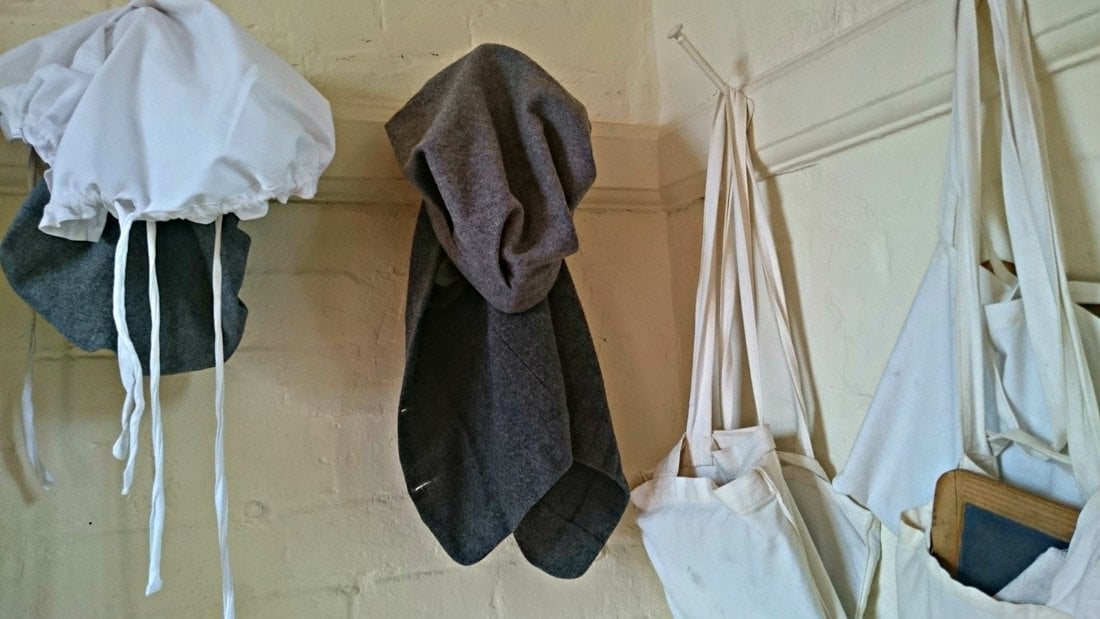
Each room tells a tale and listening to the audio guide it is possible to get a real feel for the building and its previous residents.
I always feel so grateful for all aspects of my life after experiencing what a pauper’s life entailed.
Visiting the workhouse is an eye-opening experience, not just a tour of a building, it’s time travel and it evokes so many emotions.
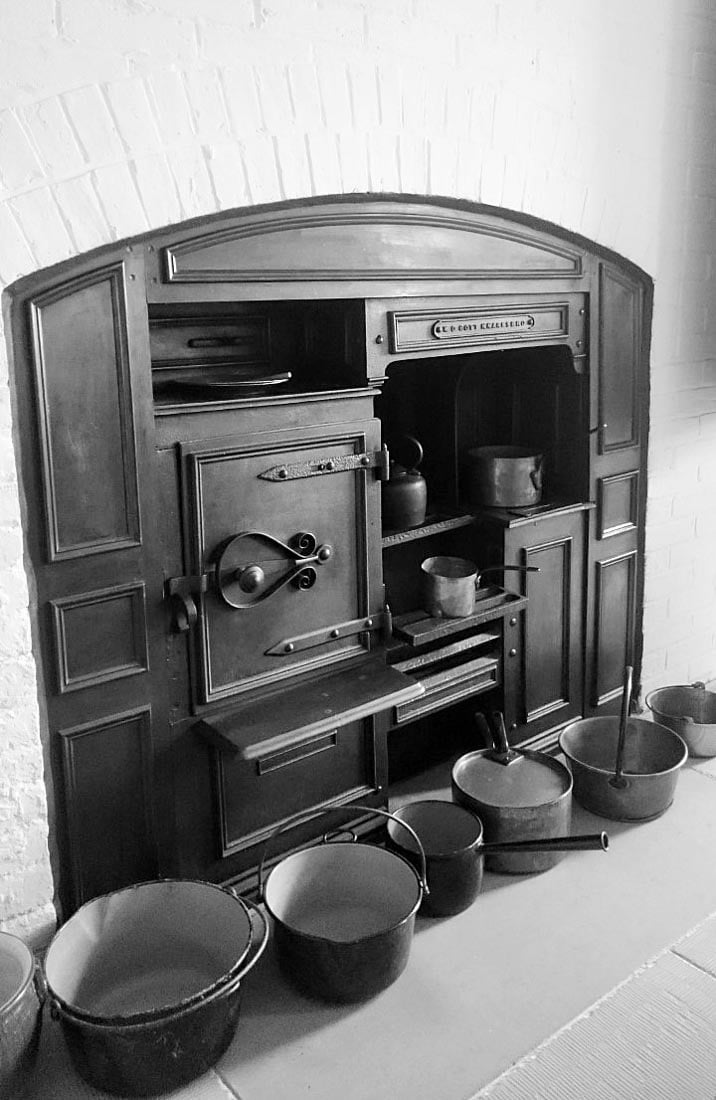
National Trust
The history and the politics of the workhouse establishment are way too complex for me to do justice, and of course the work the National Trust and its amazing volunteers do to conduct tours and bring the place to life, plus the continued work needed to keep the workhouse, it’s grounds and buildings in repair over the years is another tale.

Inspiring Experience
Yet again I’ve been humbled and amazed by the workhouse at Southwell, the inspiring history, the very unique atmosphere, and not forgetting the wonderful hospitality of the staff.
I have left feeling lighter in the knowledge that life is good. They have some wonderful souvenirs including ice-cream and coffee.
On our visit I obviously chose the ice-cream option and a quill pen to use while writing blogs. The workhouse is well worth a visit and if you would like to find out more inspiration while in the area, I recommend you visit Southwell Minster too, it is a wonderful experience.








